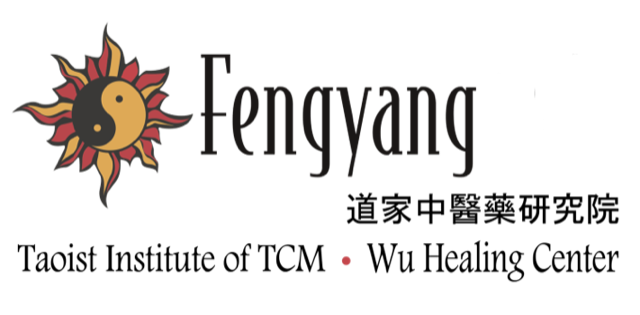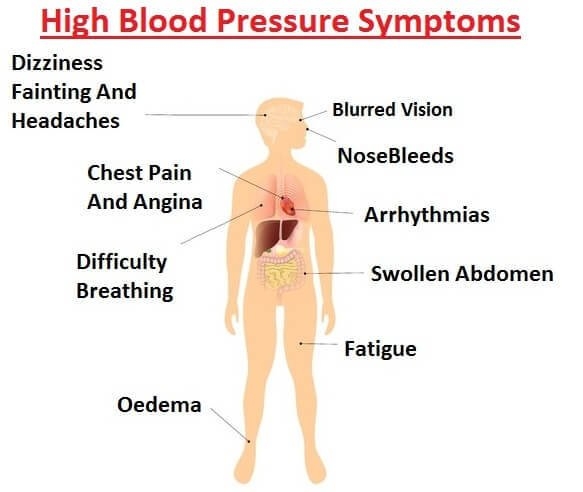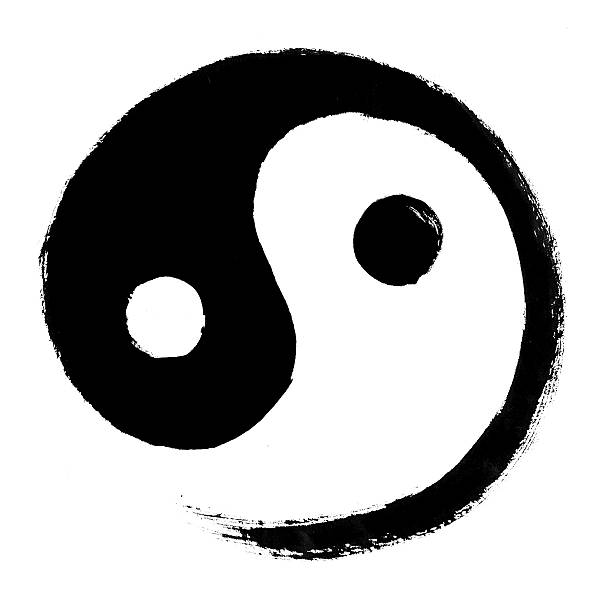The Root Cause of High Blood Pressure By Dr. Ming Wu
Are antihypertensive medicines helping or harming our bodies?
Recently, the benefits of treating high blood pressure with antihypertensive medicines have been called into question. A research published in JAMA Intern Medicine (Dec. 2018) found that treating mild hypertension (untreated BP 140/90-159/99 mm Hg) in low-risk patients didn’t improve mortality or risk of cardiovascular disease compared with no treatment, in a cohort study involving nearly 40,000 patients. During a median 5.8 years of follow-up, mortality and cardiovascular disease rates were similar between groups, but those treated with antihypertensive medicines experienced higher rates of hypotension, syncope, electrolyte abnormalities, and acute kidney injury.
Another article published in the British Medical Journal in the same month also reported disturbing results. The researchers found that angiotensin converting enzyme inhibitors (ACEIs), a type of blood pressure drugs that millions worldwide are taking daily, are associated with a higher risk of lung cancer, compared with other types of drugs.
It showed that patients on ACEIs were 14 per cent more likely to develop lung cancer. The risk went up the longer patients were on the medication. Those taking them for five years were 22 per cent more likely to get lung cancer, and the risk rose to 31 per cent if they were on them for ten years.
Scientists believe the drugs cause the accumulation of chemicals called bradykinin on the lung which in turn leads to cancer. Although the risk to individual patients is modest, the absolute numbers of patients at risk for lung cancer is potentially large because ACEIs are widely prescribed, said the researchers.
My view on high blood pressure
In one of my 6pm Monday Qi Gong classes in West Hartford, I was talking about high blood pressure is not a disease; high blood pressure is often caused by blood that's too thick and viscous to flow freely through the body's small capillaries. In order to make sure good circulation is taking place, the heart has to pump harder, thereby raising blood pressure. This is the body's way of making sure this thick blood reaches all the cells throughout the body; cells that don't receive blood will die sooner.
But healthy blood shouldn't be so viscous. It should flow more freely. When blood is properly hydrated and nourished with the right fatty acids (more omega-3's in particular), the heart does not need to work as hard to pump it throughout the body, so blood pressure automatically drops. It's like the difference between sucking water and sucking honey through a straw; the more sticky and thick the honey, the more pressure it takes to move it.
Western Medicine diagnoses this situation and say that high blood pressure is itself a disease, and this high blood pressure is attacked with drugs that artificially lower blood pressure by forcing artery walls to relax. As you might have guessed, this then causes circulation problems because the thick sludge blood is no longer reaching all the cells it need to reach, that's why you end up with circulation problems.
In U.S., of all the people I know, 99% believe that with high blood pressure, one needs to take drugs daily until end of life. But that is your belief, not my belief. I believe drinking more Pu Er Tea, Huang Jing tea or drinking herbal tea, eating Chia seeds (13g daily), eating more living nutrients, a sharp reduction in consumption of animal products, cooking with Chi daily, enjoy the life. Within 24 hours or less than 10 days after embracing such lifestyle changes, blood pressure normalizes as the blood itself becomes more hydrated and free to flow throughout the circulatory system.
One lady in the class asked me: "Can I try the Pu Er tea that you drink?", I said "Yes", and I gave her one cake of King's Pu Er tea (375g) and a Kung Fu Tea pot. Told her: "put 1 teaspoon of the King's Pu Er tea into the teapot, pour 4 oz. water to the pot, steep for 1/4 minutes, then pour tea into a cup, sit calmly, breathe in the steam, sip slowly, do that about 10 times a day with the same tea leaves. On July 26, Monday, that lady came back to the Qi gong Class, and told me: "the day after last Monday Qi Gong class, I was drinking the King's Pu Er tea as you said, less than 24 hours my blood pressure went down, I stopped taking the high blood pressure drugs on the same day. It has been 1 week now, and my blood pressure is good with only drinking the King's Pu Er tea daily."
Dr. Wu’s Ancient Tree King’s Pu Er Tea: click this link to purchase
TCM syndrome differentiation of hypertension
Hypertension, in Traditional Chinese Medicine, is characterized as dizziness, excess liver yang, and liver and kidney yin deficiency. TCM believes that excess wood (liver) Qi will damage the soil (stomach), therefore, weakening the spleen and stomach, causing headaches, dizziness, even stroke.
Most hypertension cases are chronic, but there are also acute cases. The former is more common in the middle-aged and older population. The onset is slow. There are no obvious symptoms at the early stage, and even for those that have symptoms, the symptoms tend to vary from person to person. The latter is more common in young people, with rapid onset and rapid progress, which can quickly lead to heart, kidney and cerebrovascular problems, and cause various complications.
A less common case of acute high blood pressure is paroxysmal hypertension caused by tumors in the urinary system. The patient’s blood pressure can suddenly rise to 250/120 during urination, often accompanied with paroxysmal vertigo. The symptoms are gradually relieved about 10 minutes after urination. In this situation, patients should be Immediately send to a urologist for diagnosis. Taking blood pressure medicine will only exacerbate the problem, and further damage the patients’ health.
Hypertension patients often experience headache, dizziness, tinnitus, insomnia, numbness of the limbs, shortness of breath, irritability, among other symptoms. At the early stage, patient’s blood pressure is elevated, but the level can fluctuate. At the later stage, patient’s blood pressure level rise continually, and hypertension starts to cause damage to the heart, kidney, brain and other organs, worsening the symptoms. Clinically, the specific stages are determined by the patients’ blood pressure levels.
Traditional Chinese Medicine believes that the various symptoms of hypertension are mainly due to damage to the liver. Liver governs the dispersion and discharging function of the body, and therefore, stagnation and blockage are harmful to the liver. Strong mental stimulation, excessive thinking, being too nervous can cause stagnation in the liver. Unhealthy diet can also affect the functions of the organs, causing yin yang unbalance, and in turn harm the liver. Aslo, when the body lacks sufficient energy, which can damage the organs, the liver can not get enough nutrients, thus leading to liver diseases.
In the progress of hypertension, most patients started with excess syndrome, such as excess liver fire, and gradually transformed into deficiency syndrome. Excess yang can damage yin, and when yin is weak, the yang can seem to be even more in excess. At this stage, the patient’s condition is having deficient yin and excessive yang. As the condition progresses, the organs and yin and yang all suffer damage. Yang grows steadily weaker, and the patient’s condition becomes mainly yin deficiency. In the end, both yin and yang are deficient, and the patient’s condition becomes true deficiency.
With that being said, a doctor should still differentiate the symptoms, and choose the treatment based on individual patient’s specific situation. Also, s/he should change the medicines prescribed when the patient’s condition changes. For example, for patients with excess yang, some need reducing method, while others need reinforcing the yin to restrict excess yang. To achieve satisfying results, one needs to differentiate symptoms and root cause. However, whether the results are satisfactory cannot be simply based on the blood pressure numbers, but comprehensive analysis. Using TCM syndrome differentiation method, I generally divide hypertension patients into two types: one with excess yang, and the other with deficient yang.
1. Deficient yin and excess yang
Symptoms caused by excess liver yang include: dizziness, red face, tinnitus, palpitation, insomnia, irritability, loss of balance, sore and weak waist and knees. This is mainly due to insufficient kidney water, so the liver is malnutritioned. Therefore, the yang excessiveness in this situation is not true excessiveness, so the appropriate treatment should not aim to treat excess yang, but reinforce the yin. When the kidney yin is sufficient, excess yang will be balanced.
TCM formula for this condition: Tianma Gouteng Yin plus Liuwei Dihuang Tang
Gastrodia 10g Uncaria 12g Abalone shell 30g Shan Zhi 10g Astragalus 10g Chuan Niu Xi 10g Eucommia 10g Motherwort 20g Sang Ji Sheng 10g Ye Jiao Teng 20g Fu Shen 10g Rehmannia 10g Huai Shan 10g Hawthorn 10g Mu Dan Pi 10g Fu Ling 10g Alisma 10g. Boil with water, and drink the soup once a day for 5 consecutive days.
2. Deficient spleen and kidney yang
This type of patients are more likely to experience dizziness, tinnitus, weakness in the waist and knees, chills in the limbs, and even weak and swollen lower limbs, urinary hesitancy, nocturia, and sometimes spermatorrhoea. It is commonly seen with late stage stroke patients with paralysis on one side of the body. For this type of situation, the treatment should be reinforce spleen qi, and strengthen kidney yang.
TCM formula: Buzhong Yiqi Tang plus Zhenwu Tang
Huang Qi 80g Chao Bai Zhu 30g Chen Pi 10g Sheng Ma 15g Chai Hu 15g Dang Shen 60g Wu Zhua Long 30g Zhi Gan Cao 5g Dang Gui 10g Du Zhong 10g Qian Jin Ba 10g Pao Fu Zi10g Gan Jiang 10g Bai Shao 10g. Boil with water, and drink the soup once a day for 5 consecutive days.
If hypertension has affected the heart, common symptoms include palpitation, chest tightness, shortness of breath, dizziness, tinnitus, weak waist and legs. with palpitation and irregular pulse being the main characteristics. The correct treatment should be adjusting the Ying Qi and Wei Qi, and strengthen the heart, spleen and kidney.
TCM formula: Huang Qi 80g Chao Bai Zhu 30g Chen Pi10g Sheng Ma15g Chai Hu 15g Dang Shen 60g Wu Zhua Long 30g Gan Cao 10g Dang Gui 10g Du Zhong 10g Dan Shen 15g Huang Lian 5g Pao Fu Zi 10g Gan Jiang 10g Bai Shao 10g. Boil with water, and drink the soup once a day for 5 consecutive days.
Author’s note:
When treating hypertension, it is important to use the appropriate formula to adjust the body's yin and yang, and to restore the functions of the organs. It is even more important to motivate the patients to seek changes in lifestyle and lift their mental burden. We encourage our patients to exercise regularly, balance work and rest, have a regular eating schedule, avoid milk and milk products, eat less meat and more vegetables, drink five to six cups of ancient tree Pu Er tea every day, avoid excessive thinking, and adopt other healthy lifestyle habits.
Note: The TCM formulas in this article are only intended as references for medical practitioners. They are not to be used for self-treatment.
Dr. Wu’s Ancient Tree King’s Pu Er Tea: click this link to purchase
References:
https://jamanetwork.com/journals/jamainternalmedicine/article-abstract/2708195











